Research and reports on osteopathic practice
Below are links to reports and current research relevant to osteopathic practice. The information will be of interest to osteopaths, other allied health professionals and members of the public. The information published here also includes research projects currently being coordinated by the National Council for Osteopathic Research.
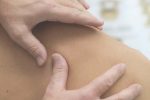
Professional Census 2021 by the Institute of Osteopathy
The iO Professional Census is a nationwide survey that collects a wealth of information about osteopaths and osteopathic practice. This report publishes the full results of the Census wave completed in 2021.
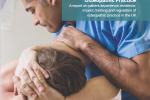
Quality in Practice Report
A report on patient experience, evidence, impact, training and regulation of osteopathic practice in the UK. It provides a concise and evidence-informed view of the profession and how osteopaths can potentially support wider health and social care services across the UK.
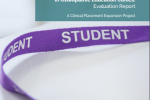
Multi-professional Student Placement in Osteopathic Education Clinics
Facilitated by the iO and in partnership with higher education institutions (HEI) offering Allied Health Professional undergraduate training, this Health Education England funded Clinical Placement Expansion Project, investigated the feasibility of hosting physiotherapy students in HEI clinics providing a recognised qualification in osteopathic training.
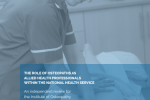
The Role of Osteopaths as AHPs in the NHS
A report by an independent panel of leading healthcare professionals, chaired by Professor Adrian Newland CBE. The report cites a range of examples where osteopaths have worked within NHS settings – varying from inclusion in primary care multi-disciplinary MSK teams, First Contact Practitioners and secondary care.
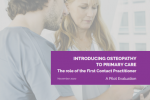
Introducing Osteopaths to Primary Care: The Role of the First Contact Practitioner
Outcomes of a pilot study, funded by the Osteopathic Foundation, demonstrating that osteopaths have the skills and qualifications required to provide high quality musculoskeletal (MSK) care as First Contact Practitioners – an NHS role introduced to provide streamlined and cost-effective services to enhance patient care and reduce GP workload.

Measuring patient outcomes after osteopathic care (PROMs)
This report provides information on the collection of Patient-Reported Outcome Measures (PROMs) for osteopathic care and the initial findings from the data The data collected form a national database of information about outcomes from day-to-day osteopathic patient care.

Effectiveness of osteopathy in an occupational health setting
This impact report demonstrates that integrating osteopathic care into an occupational health setting effectively reduced the number of work days lost to sickness absence and strongly indicate that osteopathy is a cost effective approach in this setting.
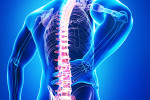
Multidisciplinary management of low back pain and sciatica in primary care
This impact report provides an overview of the Plymouth Community Back Pain Service which has delivered a sustainable primary care service with measurable outcomes run by a multidisciplinary team including GPs, osteopaths, cognitive behavioural therapists and physiotherapists.

Osteopaths in secondary care spinal unit: impact report
This report outlines the positive quality impact of embedding osteopaths in a secondary care spinal unit. The report covers data collected over six-year period demonstrating clinically significant improvements in pain, function and health-related quality of life in this complex patient group.

Snap-Shot Summaries
A collection of brief summaries of literature available on various topics that may be of relevance to your practice. The summaries are not systematic reviews and are in no way intended to act as definitive guidelines; their aim is to summarise the content and conclusions of current literature available on the highlighted subject.

Paediatric Review
NCOR launched a Centre For Reviews (CFR) in 2017. This aims to be a one-stop-shop for osteopaths who want to read summaries of the latest evidence relating to osteopathic care and management. The first major piece of work that the CFR undertook was a systematic review of manual therapies in the treatment of babies and children.

PREOS – Patient Reported Experiences of Osteopathic Services
All patients who use osteopathic services are encouraged to provide feedback on their experiences — good or bad. Information gathered from patients will be analysed by our research team. Any trends will be fed back anonymously to the osteopathic profession to improve patient care. We will build on the positive aspects of care to help…
PILARS – The Patient Incident Learning and Reporting System
A website for UK registered and student osteopaths to use as a learning resource. This platform enables you to anonymously report, view and comment on actual and potential patient incidents relating to osteopathic services, and learn from those experiences.